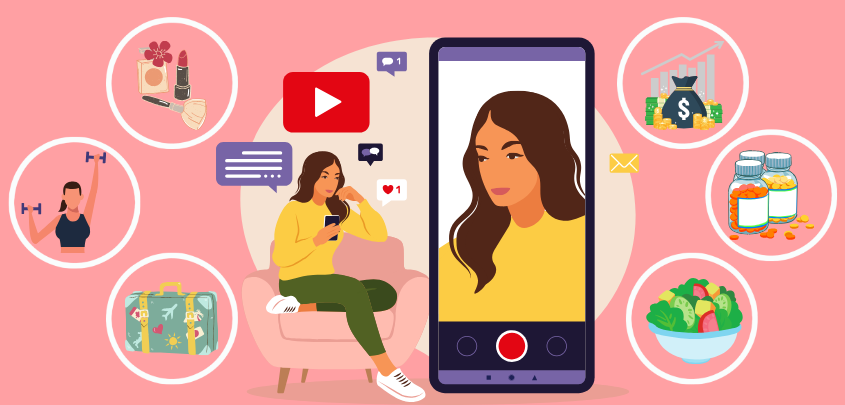
13, May, 2024
Beyond Likes and Follows: The Impact and Responsibility of Social Media Influencers
Social media has transformed the way people connect and share information. Platforms such as Instagram, TikTok, and YouTube have given rise to social media influencers—people with enormous followings who can have a major impact on their audience’s attitudes and behavior. While influencers can have a positive effect by advocating important causes and offering unique insights, there is rising concern about the lack of regulation, responsibility, and monitoring in this space.
Insta-Influence: Social Media Influencers Shaping Our Perceptions
Influencers are typically seen as trend setters, and their endorsements can have a significant impact on their followers. However, unlike traditional media, social media platforms are not strictly regulated, making it impossible to hold influencers accountable for the information they post. This unregulated nature can result in misinformation, unwanted advice, and the exploitation of more vulnerable audiences.
Many influencers offer health and wellness advice without proper medical or nutritional expertise. While some suggestions may be harmless, others, like promoting unproven supplements or trendy diets, can be harmful, especially to vulnerable audiences. Without oversight, users must distinguish credible sources from misleading ones.
Similarly, in the area of financial advice, social media influencers can be harmful to you. With the rise of influencers providing stock market tips, investment ideas, and cryptocurrency advice, there is a risk that consumers will make financial decisions based on inadequate or incorrect information.
Social media influencers often present a polished, glamorous image of their lives, creating an illusion of perfection that can be misleading. Consider travel influencers whose Instagram feeds are filled with idyllic landscapes and luxurious experiences. While visually captivating, these images may not always reflect the full reality. Behind the scenes, influencers may receive freebies or sponsored trips, blurring the line between genuine experiences and promotional content.
This filtered reality extends beyond travel to other aspects of life, such as fashion. Many influencers showcase designer clothing and accessories, giving the impression of a lavish lifestyle. However, much of what they flaunt is gifted by brands, obscuring the distinction between personal taste and paid endorsements. It’s essential for followers to recognize that not everything they see on social media is authentic or attainable.
Responsibilities of Influencers
Given the potential for harm, influencers have a huge responsibility to ensure that the content they distribute is accurate and trustworthy. This involves conducting adequate research, being transparent about sponsored content, and using clear disclaimers when offering advice.Moreover, influencers must be mindful of the impact their posts can have on followers, avoiding the promotion of unrealistic standards or harmful behaviors.
Regulation and Monitoring: An Increasing Need
The absence of clear standards and monitoring in social media and influencer culture raises concerns. Governments and platforms should establish guidelines for accountability, including mandatory disclaimers for sponsored content, verification of expertise for health and financial advice, and penalties for spreading misinformation. Social media platforms can aid by enhancing algorithms to detect false content, offering clearer reporting tools, and partnering with experts to provide reliable resources for users.
Conclusion
Social media influencers have transformed communication and information sharing, yet the absence of regulation raises concerns. Both influencers and users must ensure the accuracy of information and make informed choices to maintain a safer online environment.
